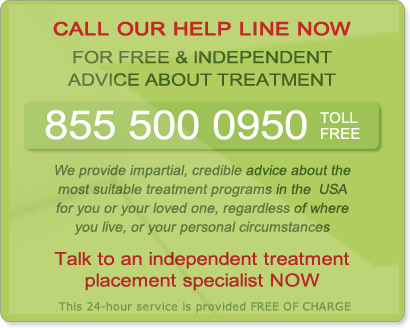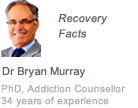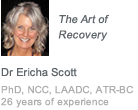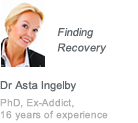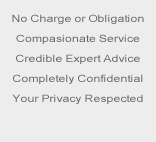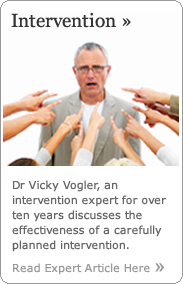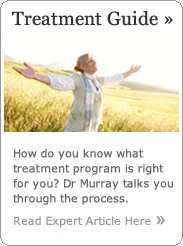Relapse and Recovery
Lapses, relapses and recovery are all part of the roller coaster of addiction. Beating yourself up because you lapse is fruitless and not necessary. Maybe it would a good idea to get a little perspective on it.
Things have been going really well for you. You have shown immense courage in owning up to your addiction and choosing to take positive action to overcome it, to get clean and work at your rehab and recovery.
You have been both amazed and comforted by the love, understanding, care and support that others have shown for you through the challenge of your withdrawal and despite the ups and downs of your bumpy journey to recovery from addiction.
You have made significant progress working in partnership with addiction counselors and other healthcare specialists. The signs are good that you will eventually be free from your addiction.
But then, in an idle moment, your mind wanders. The fading addiction tugs gently at the corner of your consciousness and a memory forms. A memory of something familiar; somewhere you went to score, someone you got high with, a happy association with the high itself. This glamorized nostalgia becomes a nag. The nag becomes an urge. Eventually, if the warning signs are ignored, the urge will become a craving.
You are in danger of a relapse and recovery from your addiction will have suffered a setback.
Relapse and recovery is not the end of the world
Relapses happen. Nobody said that the process of recovery and rehab from addiction would be easy. We are only human. The most important point to remember is that a relapse does not signify your immediate return to addiction. It does not undo all of the hard work you have put in to get this far. It does not mark you out as weak-willed. Relapse and recovery is an accepted risk of the process of quitting an addiction, getting clean and rehabilitating.
If you suffer a relapse, examine the circumstances that led to it and think about strategies and methods that will enable you to avoid these circumstances in the future. There is no need to dwell on the relapse itself. Forget about it and move on with your rehab. Above all, do not criticize yourself and do not give up.
Strategies for avoiding repeated relapse and recovery
Avoiding relapses is fundamental to your progress in recovery from addiction. Here is a list of suggested ways in which you can help yourself to minimize the risks of relapse and recovery:
- Banish from your life as many potential influences or reminders of your addiction as you can. Dump any remaining paraphernalia such as skins, needles, cigarettes or alcohol. Delete the contact details of anyone connected with your addiction from your phone or address book. Avoid visiting any of the places in which you might be tempted to return to your habit.
- Avoid situations which might become stressful or confrontational. Do not place yourself in a position which might leave you feeling the need to ‘relax’ or ‘escape’
- Get help. It sounds obvious, but if you feel the initial urges of your addiction returning you need to talk to someone who can help you as soon as possible.
- Learn to recognize and deal with as many of the warning signs as you can. It is not possible to pre-empt every single situation or circumstance that might provoke a potential relapse, but jot down as many as you can when they occur, and if necessary seek professional help to discuss effective ways of dealing with them.
- Under no circumstances try to ‘test’ the progress you have made in your rehab. Finding out whether ‘just one painkiller’ or ‘just one drink’ will make any difference to your recovery and rehab is a sure-fire way of triggering a relapse.
- Accentuate the positive. You have done well getting so far in your rehab. You do not need your addiction. That part of your life is over. Tell yourself these things. Convince yourself – it should not be hard because they are true. You are a different person now, on the way to a better life. It would be pointless to throw all of that away again.
- Keep yourself occupied and healthy. Do not give your mind time to wander. Adopt new pastimes and interests that are as far removed from associations with your addiction as possible. Join the library. Go fishing. Do voluntary work. But most importantly, feel good about yourself.
Remove the risk of relapse and recovery entirely
Evidence suggests that the greatest risk of relapse occurs in the early stages of rehab. Recovering addicts who opt for outpatient or day treatment, or who have addiction counseling in their own homes are inevitably at risk of relapse from familiar temptations and situations.
Perhaps the most effective way to avoid these potential invitations to relapse is to remove yourself to a residential rehab center which provides an environment in which you can recover beyond the reach of any associations with your addiction, and where you are never far from professional help should those unwanted cravings come to call.
You do not have to let a relapse take away your chances of a happier and more fulfilled life. Keep positive, keep going and make your addiction a thing of the past.


